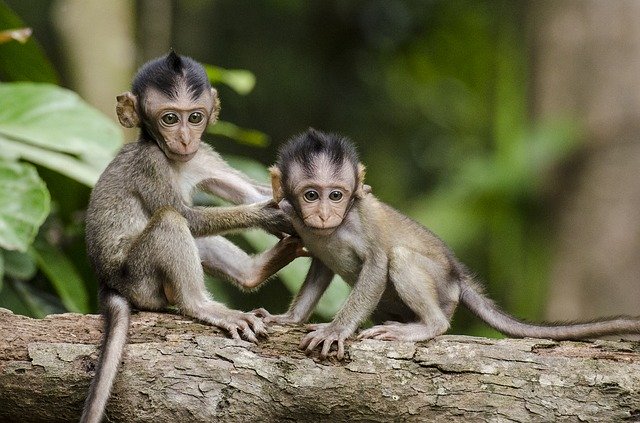In some countries with large monkey populations, humane traps have been devised to catch monkeys and prevent them from stealing food and valuables or ruining people’s homes. The traps are deceptively simple. Typically, a large fruit with a hard skin, like a coconut, is used for the trap. A hole just large enough to fit a monkey’s hand is cut into the skin of the fruit. Some extra weight like pebbles or sand are added, then some food is placed inside as bait for the monkey to find.
The monkey smells the food, then sticks its hand through the hole to grab it. With the food in its hand, it can’t fit its fist back out through the hole, so it remains trapped. But in truth, the monkey is only trapped because of its unwillingness to let go of the food. At any time, the monkey could simply release the food and set itself free. Therefore, it is not the coconut but the monkey’s attachment to its food that keeps it imprisoned.
This is a poignant analogy for our own attachments. The coconut represents life situations—negative or positive—that ultimately always presents us with a choice. We can either hold on to something that prevents us from moving forward, or let it go and be free. The food can represent material possessions, our past, habits, addictions, people, fear, or preconceived notions and perceptions.
In truth, our hand is perpetually “in the coconut” in one way or another. When we grasp or act without thinking, we are imprisoned by our behavior on a conscious or unconscious level. In those moments and, arguably, every moment of our lives, we are constantly being invited to choose: hold on to old ways and stay trapped in suffering, or let them go and change.
For example, you might be unhappy at work. The pay is okay, but the job is uninspiring and dull. You wish you could quit but you don’t even know if you can get a better job. You hold on to a familiar unhappiness rather than risk the unfamiliarity of change that might improve your life. The dull job, your complacency, and the fear is the “food” you are holding on to.
However, when our actions are in sync with our awareness and wisdom, we gladly release what no longer serves us. To hold on would be equivalent to a monkey grasping its bait while foolishly forgetting that there’s a forest where that food grows in abundance.
Awaken. Be aware of when your hand is in the “coconut trap.” Ask yourself, “Is this supporting my growth?” If the answer is no, have the courage to let go of the false promise of security.
Like the monkey, you have access to an abundant forest of unlimited possibilities. Don’t squander them over one measly coconut.






